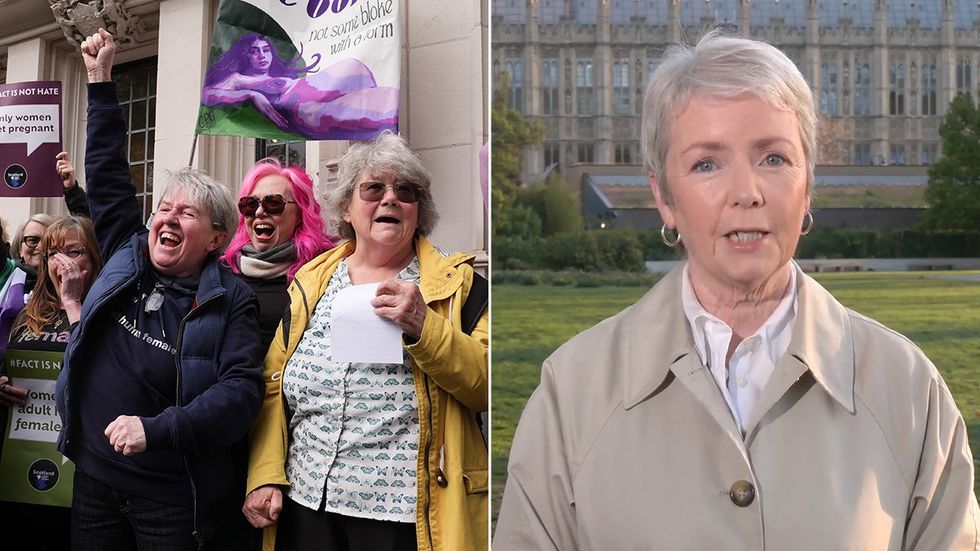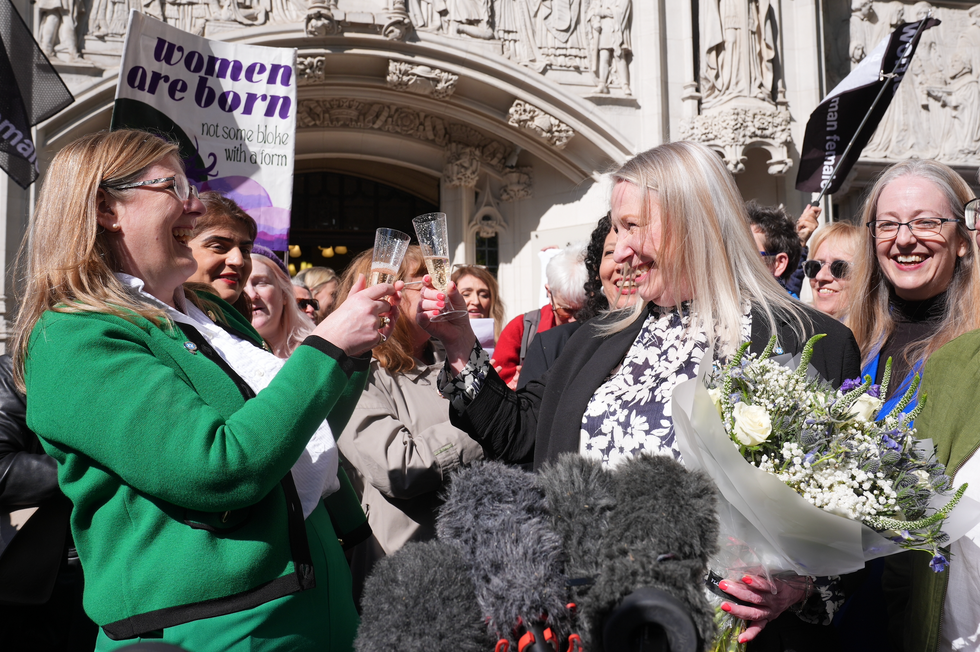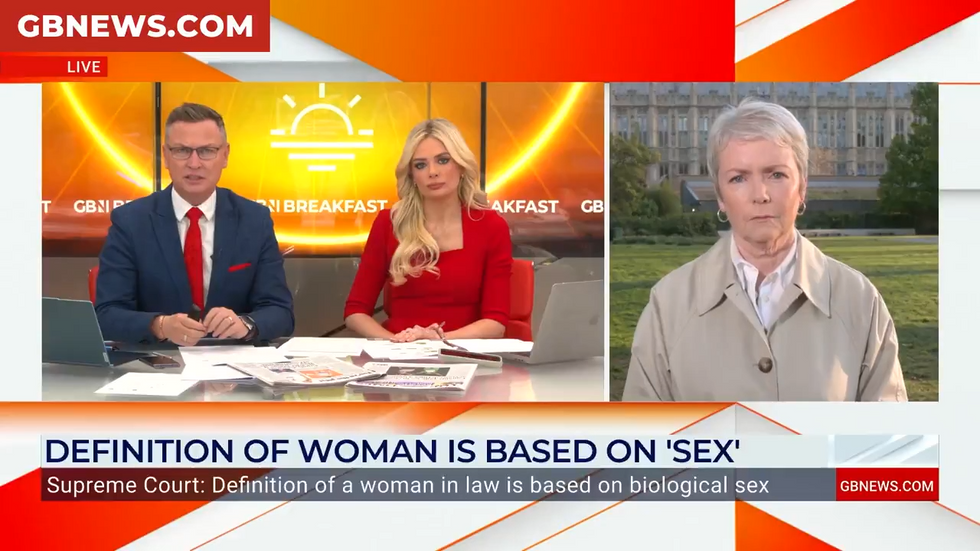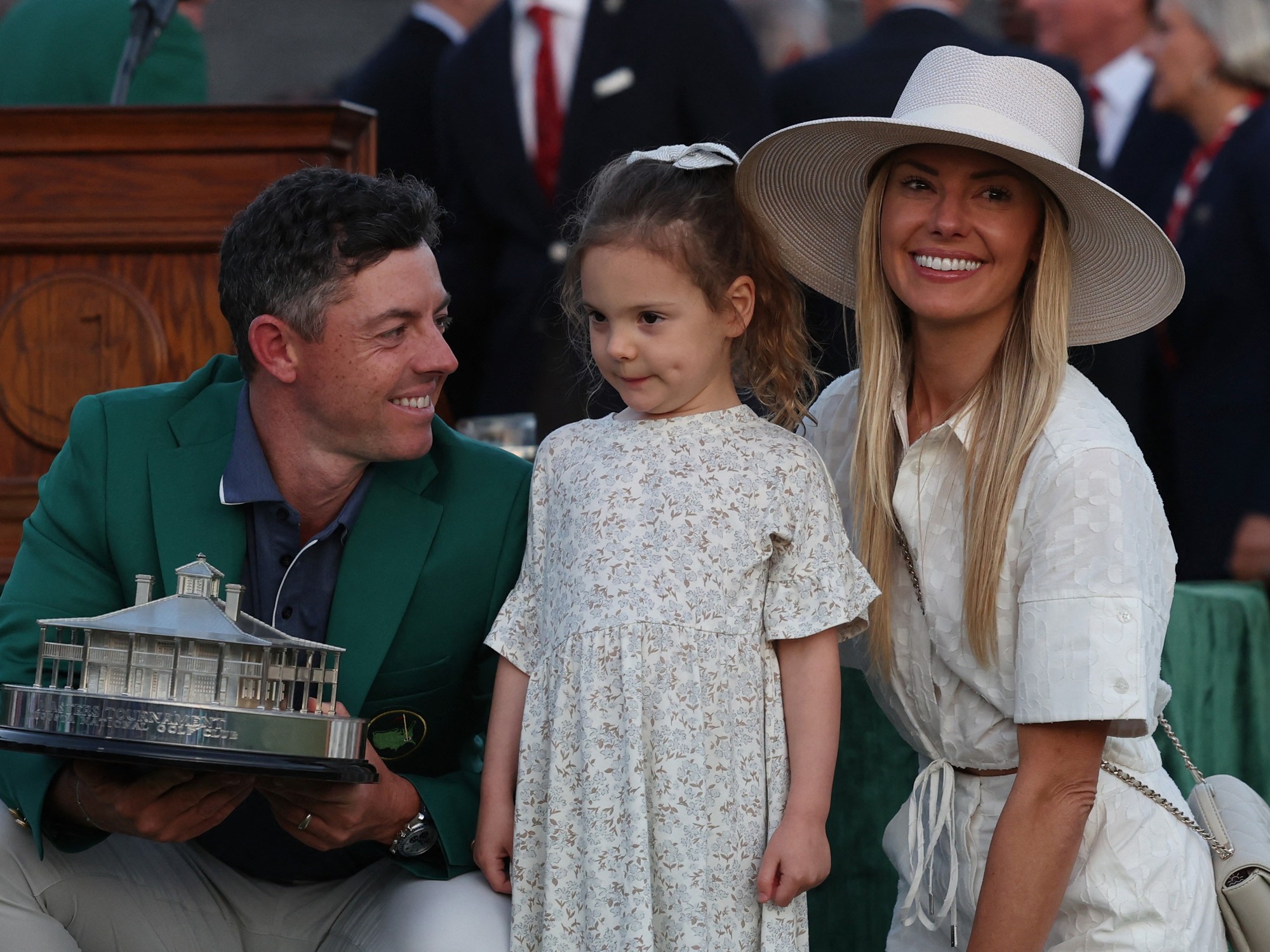WATCH NOW: Health Minister Karin Smyth MP welcomes the Supreme Court’s definition of ‘woman’ as biological
GB News
Lord Hodge declared that the Equality Act 2010 refers to 'a biological woman and sex'
Don't Miss
Most Read
Trending on GB News
Labour Health Minister Karin Smyth has thrown her support behind the Supreme Court after their landmark ruling upheld the definition of a woman.
Following a challenge by campaign group For Women Scotland, Lord Hodge declared that the Equality Act 2010 refers to "a biological woman and sex".
Lord Hodge told the court: "Our role is to ascertain the meaning of the legislation which parliament has enacted to that end. The central question on this appeal is the meaning of the terms woman and sex in the Equality Act 2010.
Delivering their verdict on the decision, a UK Government spokesman said it gave "clarity and confidence", both for women and for those who run single-sex spaces.

Health Minister Karin Smyth has welcomed the ruling by the Supreme Court on biological women
PA / GB News
Discussing the ruling on GB News, Health Minister Karin Smyth said the Supreme Court has offered "real clarity" for women across Britain.
She claimed: "It is a complicated issue, but the ruling gives real clarity now to this issue from the Supreme Court. That's a good thing. And I understand from the Equality of Human Rights Commission that they will be following up with guidance to all public bodies.
"And that is obviously to be welcomed, that there is clarity for women and clarity for providers of services, which I think was is really welcome."
When pressed by host Ellie Costello on why the decision escalated to the level of the Supreme Court rather than politicians, Smyth claimed it gives Parliament "clarity" on legislation that has been "confused" in the last few years.
LATEST DEVELOPMENTS:

Campaigners celebrated Wednesday's ruling outside the Supreme Court
PASmyth explained: "As a Labour representative, you expect me to say we're proud of the Equality Act, which was brought in under a Labour Government in 2010.
"We're also proud of the work we did to support people undergoing gender reassignment with the Gender Recognition Act - those are both Labour pieces of legislation, and I think Parliament was clear in its intent.
"What we've seen in the last few years is some confusion around the implementation of that and what we've seen from the Supreme Court yesterday in this long judgment, which obviously would need to be now carefully considered by Government, is giving clarity to the effect of the Equality Act in 2010 that it has stood that test."
Smyth was then grilled by host Stephen Dixon on what the decision means for transgender people, particularly in single-sex spaces such as hospital wards.

Smyth told GB News that it will be up to 'local institutions' to decide on single-sex spaces
GB News
Smyth told GB News: "Let's remember that most people don't go into hospital who encounter the NHS. 90 per cent of patient contact with the NHS is through their GP, through primary care.
"So same sex wards were part again of legislation in, I think, 2001. In hospitals today, you have largely a large number of single rooms, you have smaller wards for same sex patients, for people to have dignity."
She added: "It's also important that people, transgender people, also have dignity and privacy. And in individual cases, that will be up to local institutions to make sure that they provide dignity and privacy to all patients."








